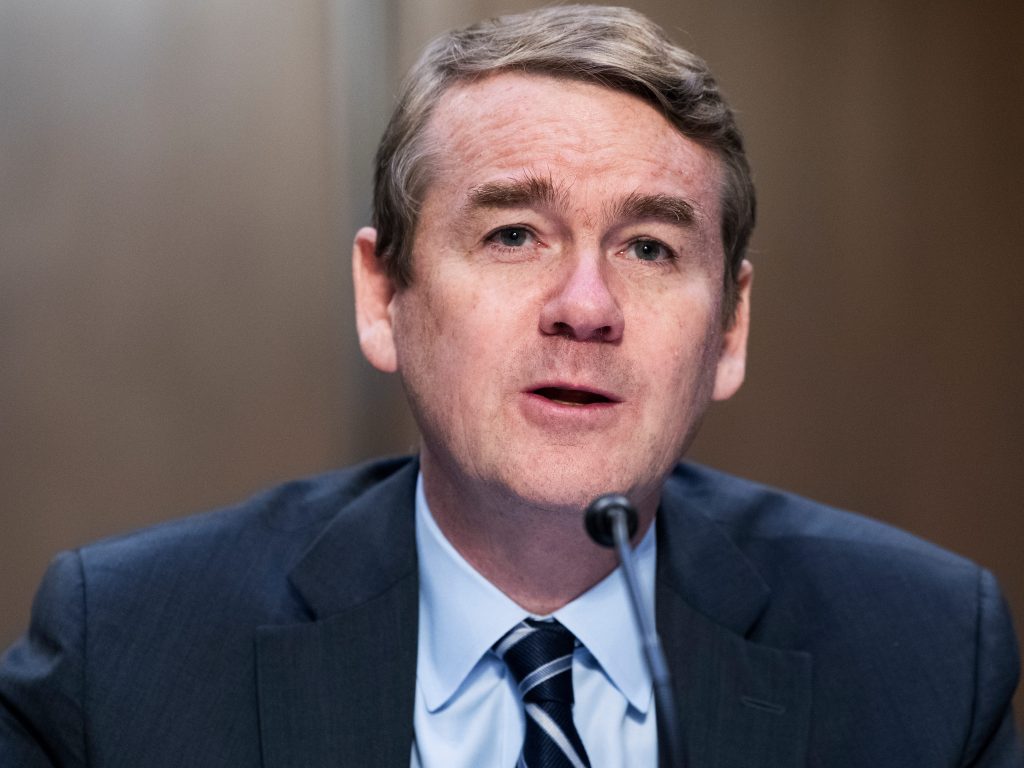- Biden announced up to $20,000 in student-loan forgiveness for federal borrowers.
- Senate Democrat Michael Bennet said he wished the relief was more targeted.
- He has previously criticized one-time debt relief for not addressing higher education costs.
Many Democrats lauded President Joe Biden's student-loan forgiveness announcement. Many Republicans slammed it. But it's not so simple for one vulnerable Democratic senator.
On Wednesday, Biden announced up to $20,000 in student-loan forgiveness for Pell Grant recipients making under $125,000 a year, and $10,000 in relief for other federal borrowers within the same income cap. While this was long-awaited relief, and came after a months-long push from Democrats to deliver on debt cancellation and go even bigger than what the president announced, Colorado Sen. Michael Bennet — a Democrat up for reelection — was hoping for an even smaller scope of loan forgiveness.
"In my view, the administration should have further targeted the relief, and proposed a way to pay for this plan," Bennet said in a Wednesday statement. "While immediate relief to families is important, one-time debt cancellation does not solve the underlying problem. So I'm pleased to see reforms to income-driven repayment plans and the Public Service Loan Forgiveness program."
Bennet added that Biden should "reform the system that got us here in the first place" through permanent solutions to bring down the cost of higher education, such as free community college. This is not the first time Bennet has criticized Biden's loan forgiveness plans — in June, he said that "across the board cancellation of college debt does nothing to address the absurd cost of college or fix our broken student loan program."
"It offers nothing to Americans who paid off their college debts or those who chose a lower price college to go to as a way of avoiding going into debt or taking on debt," he added. "It ignores the majority of Americans who never went to college, some of whom have debts that are just as staggering and just as unfair."
Regarding Bennet's concern with the economic impact of the relief, Domestic Policy Advisor Susan Rice said during a Wednesday press briefing that the announcement "will be good for the economy."
"We are on track to cut the federal deficit by more than $1.7 trillion this year, the single largest deficit reduction ever," Rice said. "And numerous experts affirm that restarting paused loan payments at around the same time as we provide targeted debt relief will not have any meaningful effect on inflation."
It's a concern Republican lawmakers have brought up, as well. Following Biden's announcement, many took to social media to slam what they said is unnecessary and costly relief. Utah Sen. Mitt Romney, for example, said "it fuels inflation, foots taxpayers with other people's financial obligations, is unfair to those who paid their own way & creates irresponsible expectations." And Senate Minority Leader Mitch McConnell called the relief "student loan socialism."
—Senator Mitt Romney (@SenatorRomney) August 24, 2022
Still, as Bennet noted, this is a one-time student-loan forgiveness action, meaning future permanent policies are likely warranted to tackle the costs of higher education and debt repayment programs. The Education Department announced plans to expand relief through the Public Service Loan Forgiveness program and income-driven repayment plans, and a White House fact sheet noted that following broad loan forgiveness, the department will look into the specific programs that are causing student debt to be unmanageable for many borrowers.
